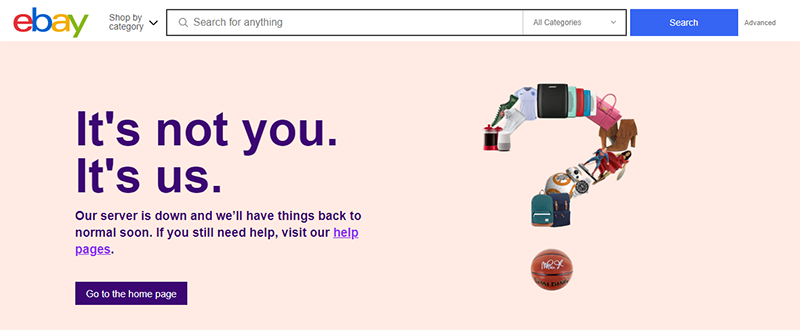
Black Friday: how load balancers power the world’s biggest eCommerce event
Retail Published on •3 mins Last updatedBlack Friday and Cyber Monday are the biggest retail events of the year all over the world. And load balancers are at the heart of it, ensuring millions of robust eCommerce transactions during the last weekend of November.
During Thanksgiving weekend in 2019 a record 189.6 million US consumers went shopping, according to the National Retail Federation. Of that total, significantly more shopped online than in-store (142.2 million online versus 124 million in store – including more than 70 million doing both).
Meanwhile, a Deloitte survey found that, this year, 74% of US consumers will choose online shopping to avoid crowds during Thanksgiving, a figure accelerated by social distancing and the pandemic.
With more and more transactions taking place online, retailers have come under increasing pressure to ensure consistent and reliable online transactions to a growing number of shoppers – and to compound the issue, the rise of sales promotion websites and short-lived events like Amazon’s Lightning Deals, create unprecedented surges of potentially millions of concurrent customers, all competing to purchase items before they run out of stock.
Unfortunately, we’re all still familiar with the frustration caused by a page like this:

According to neilpatel.com:
- 47% of consumers expect a web page to load in 2 seconds or less
- 40% of people abandon a website that takes more than 3 seconds to load
Meanwhile, HotJar found that 13 percent of shoppers would abandon their cart if they experienced ‘website errors or crashes’.
So how do retailers ensure their eCommerce sites don’t end up frustrating consumers during a shopping holiday?
With planning, infrastructure and a correctly-sized load balancing appliance, it’s simple enough to mitigate these issues, serving more robust online experiences when customers come calling en masse.
Resilience – when you need it most
Because load balancers route traffic to servers, they ensure website availability – even during times of heavy traffic (such as a last-minute shopping frenzy). The load balancer sits in front of your web servers, and before directing users to your website and checks the server:
- is functioning
- has available capacity
This ensures users at least begin their shopping experience in an environment that is both working – and performing within expectations.
Scale up (and down) to meet demand
With virtual load balancer appliances, it’s quick and easy for retailers to increase resources to meet anticipated peaks in holiday shopping demand, then scale back down to usual operational levels later.
This is also much more cost-effective than buying hardware appliances which go unused for most of the year.
Load balancers help ensure persistent sessions
When you start filling your cart with items, this information is stored with your session data locally in your browser – while browsing, if you make different requests to different servers during the same session, this can lead to shopping cart errors, performance issues or other problems which cause shoppers to abandon the transaction.
So it’s important to ensure that multiple requests from a user are all sent to one server for the length of their shopping session – this is called ‘session persistence’ and can be handled by the load balancer.
eCommerce case study
Loadbalancer.org provided a UK retailer with a highly available load balancing solution, and worked in partnership with them to design a shared MySQL Cluster to provide unlimited scalability for their ecommerce website, removing imminent bottle necks and future-proofing it for the next 10 years.
Challenges
- The load balancer would need to handle up to 1 million customers a day
- Half of these customers would be in long SSL-based shopping sessions
Solution
- Hardware product with redundant PSU
- Ensures uninterrupted website service for customers
- Responsive, personalised, expert technical support anywhere in the world
Speak to us today about your eCommerce needs, or find out more about our flexible products and payment structures.
